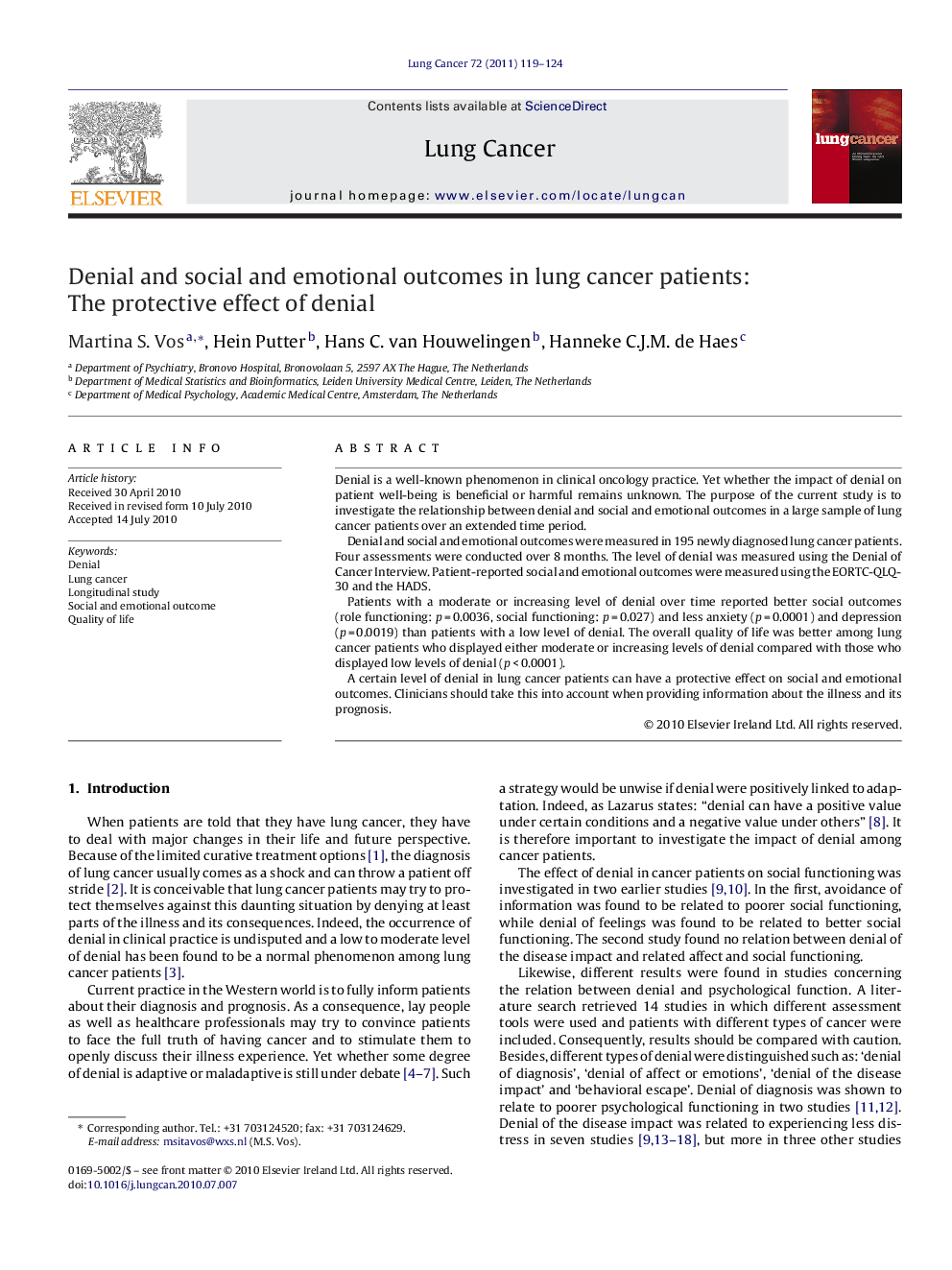| Article ID | Journal | Published Year | Pages | File Type |
|---|---|---|---|---|
| 2141504 | Lung Cancer | 2011 | 6 Pages |
Denial is a well-known phenomenon in clinical oncology practice. Yet whether the impact of denial on patient well-being is beneficial or harmful remains unknown. The purpose of the current study is to investigate the relationship between denial and social and emotional outcomes in a large sample of lung cancer patients over an extended time period.Denial and social and emotional outcomes were measured in 195 newly diagnosed lung cancer patients. Four assessments were conducted over 8 months. The level of denial was measured using the Denial of Cancer Interview. Patient-reported social and emotional outcomes were measured using the EORTC-QLQ-30 and the HADS.Patients with a moderate or increasing level of denial over time reported better social outcomes (role functioning: p = 0.0036, social functioning: p = 0.027) and less anxiety (p = 0.0001) and depression (p = 0.0019) than patients with a low level of denial. The overall quality of life was better among lung cancer patients who displayed either moderate or increasing levels of denial compared with those who displayed low levels of denial (p < 0.0001).A certain level of denial in lung cancer patients can have a protective effect on social and emotional outcomes. Clinicians should take this into account when providing information about the illness and its prognosis.
